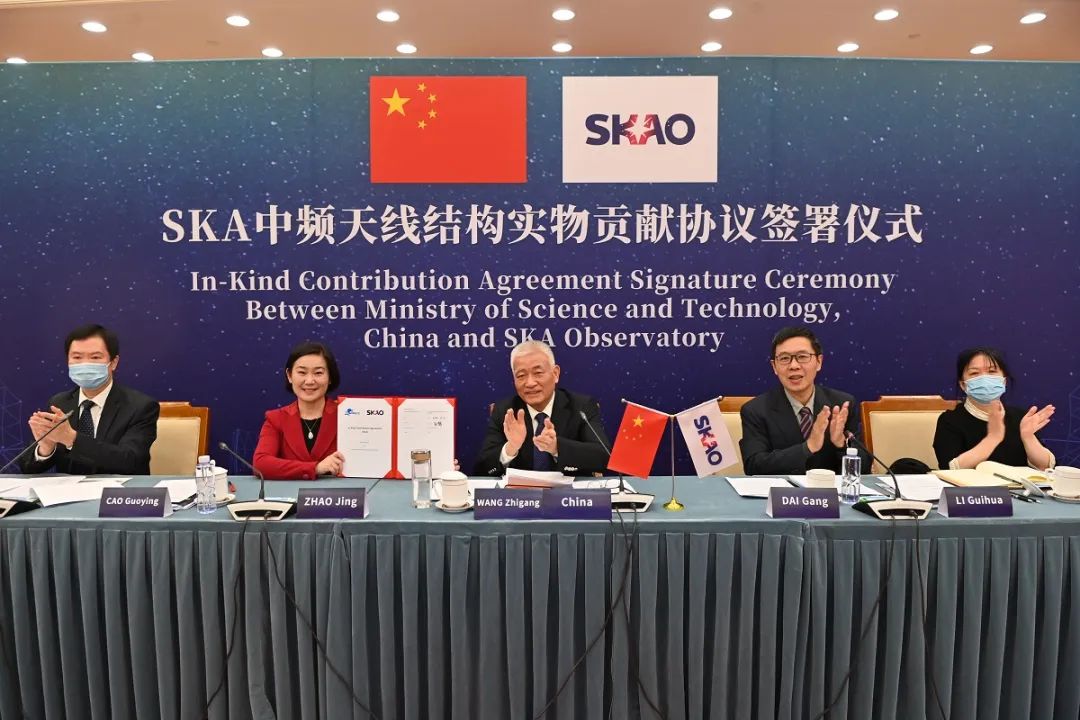
Wang Zhigang?(C), minister of science and technology of China,?attends?the?online?agreement?signing??ceremony?with SKA Observatory (SKAO) on December 2.?(PHOTO:?MOST)
By?LIN?Yuchen
China has pledged to cover the cost of a key component of Square Kilometer Array (SKA), signing an in-kind contribution agreement with SKA Observatory (SKAO) online on December 2.
The SKA project is an international initiative in radio astronomy, aiming to build the world's largest radio telescope which may revolutionize our understanding of the laws of fundamental physics. SKAO is an intergovernmental organization initiated by seven countries including China, bringing nations together for global collaboration and innovation.
The in-kind contribution from China represents SKAO's largest single procurement so far, heralding a new accelerating period of SKA's overall construction, according to a message released on the official website of the Ministry of Science and Technology after the signing ceremony.
"The signing of the agreement is not only a full recognition of our previous participation in the SKA work at an early stage, but also places higher demands on our technology, products, and service levels," said Chen Zhaoxiong, president of China Electronics Technology Group Corporation, adding that the company will work more closely with the domestic and international partners to ensure the completion of the task.
As one of the first initiators of the SKA project, China has been involved in all the important moments of its development, said Cartherine Cesarsky, chairperson of SKAO Council, adding that the country has provided useful support for the creation of the SKAO.
On December 5, SKA telescope construction started officially in Australia and South Africa. Representatives of multiple member countries attended the commencement ceremony online.
"The construction commencement ceremony is a great milestone in the development of SKAO and also the remarkable result of the long-term concerted efforts of all participating countries," said Wang Zhigang, minister of science and technology of China, adding that China will continue to fulfill its commitments and contribute wisdom and strength to the SKA project.
The trio will conduct a series of experiments in fields such as life science, fluid physics, combustion science and materials science. Notably, this is the first time that fruit flies have been taken on a Chinese space mission as experimental subjects. What made scientists choose fruit flies? What experiment will they undergo?
